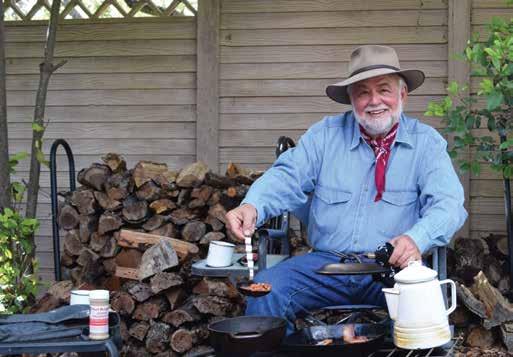
2 minute read
Voice of Texas Hunting
Fair Chase—Texas Style
By Horace Gore
Fair Chase is a description of hunting defined by the Boone and Crockett Club as giving a game animal “a fair chance to elude the hunter.” They define the variables of fair chase, but the bottom line is “give the bird or animal a chance to escape the advantages of the hunter.” Texans seldom discuss fair chase, because fair hunting in Texas is common to a variety of game. I’ve heard hunters say, “Everything I hunt has more than a fair chance.”
Most states have descriptions of fair chase in their hunting rules and regulations. States with public lands usually have more regulations defining fair chase and safety. Texas is a unique state with 95% private property, where someone owns the land you’re hunting on, and you need permission to hunt. This makes hunting in Texas different, and safer, from any other state in the union.
Private property rights have a wide variety of advantages to Texas hunters. They can lease hunting land; they know who is hunting private land and where; they can set their rules for hunting; and with MLDP permits, they can set their own bag limits for deer, and they can set their own rules for fair chase.
Most Texas hunters I’ve hunted with have no reason to violate Texas rules of fair chase. The only question comes from high fences, and I have never been able to tell any difference in hunting behind a high fence and hunting open range. The use of feeders, trail cameras, high blinds and bait makes fences a moot question.
I’ve hunted all over Texas and other states and I find it unusual to get into a situation that violates fair chase. How can hunting pronghorns in the Panhandle or West Texas violate fair chase? The same is true with mule deer in Wyoming or Utah. It’s difficult to violate fair chase when hunting whitetails in Texas. The use of baiting, trail cameras, high-drive blinds and shooting out the pickup window are legal and common.
We can sprinkle milo on ranch roads and go back to cash in on a good quail supper. We can put corn in wire cages on the creek and go back for a good squirrel stew or fried squirrel with gravy. We bait deer and turkey, and we shoot thousands of doves coming to waterholes, or to water that we have created by letting the water trough run over. We even legally shoot hogs at night.
When you’re sitting in a blind, near a feeder and a trail camera that has shown a good buck coming to the feeder, is this violating fair chase? If so, thousands of Texans violate fair chase every year. Is checking several trail cameras to find where the big buck spends his time a violation of fair chase? If so, thousands of Texas hunters violate fair chase every year. If you kill a good buck from a high-drive on the ranch road, have you violated fair chase? If so, hundreds of hunters in South Texas violate fair chase every season.
Hunters like to hunt where every hunting situation is “fair chase,” based on state rules and regulations. That’s why thousands of out-of-state hunters come to Texas every year, and Texas is known far and wide as a hunting state where everything is fair chase except on Saturday night.












